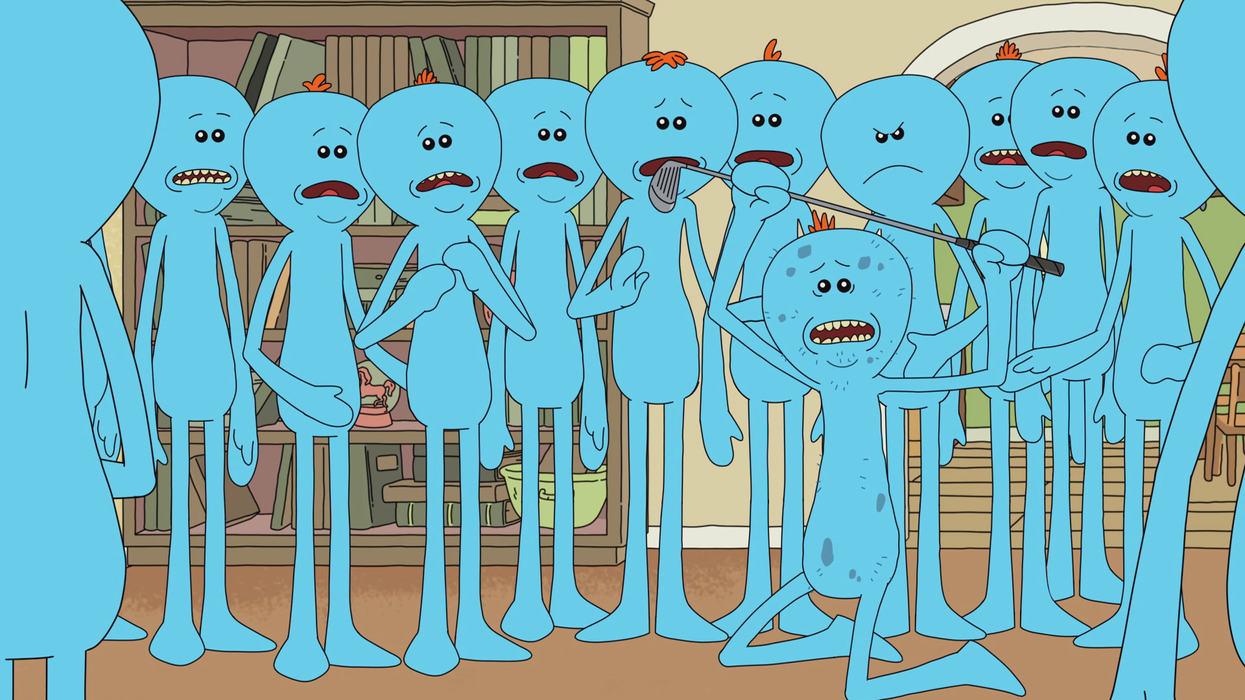This 'Rick & Morty' Script Can Teach You A Lot About Writing
Rick & Morty scripts are inventive, imaginative, and incredible to read. Download the "Meeseeks Box" episode of the show and learn how to set up key moments in your story.

The secret to any screenplay is starting strong.
We've talked about how the first ten pages of your feature are the most important and how cold opens set your story up for success.
Today I want to look at the opening scenes of a Rick & Morty episode to show you how the writer uses them to set up the 30-ish pages that come after.
Let's jump in!
Download a Rock & Morty Script PDF here - Read the "Meeseeks Box" episode.
Rick & Morty is one of the funniest and best-structured shows on TV. They know how to tell a story and how to tell it right.
That's why I am so excited to present the opening pages of S1E04, aka "The Meeseeks Box," written by Ryan Ridley. Let's analyze the opening scenes of the episode to look at how everything after is the product of an excellent opening.
Check out the pages:
First, let's talk plot. Rick and Morty are being chased by demonic spirits that look like Morty’s family. We know, based off the script pages, that we're coming in media res, or during the action. After they escape immediate danger, we find the guys back in the garage.
Morty is upset with Rick. We get his personal stake in the episode right away. Morty decides he doesn’t want to do adventures with Rick anymore. Rick is always pressuring him and putting him in danger, and Morty hates it.
So Rick, being Rick, proposes a bet: Morty gets to lead an adventure. If said adventure is fun and exciting, he’ll get to lead every tenth adventure, but if the adventure sucks, Morty isn't allowed to complain anymore. Now we have the stakes for the episode. And we're only a few minutes into it.
After this, we also get an introduction to the episode's B-story. Here, Jerry, Beth, and Summer are given them a Meeseeks box by Rick after he gets sick of helping them The Meeseeks solve problems, and disappear once they’ve accomplished their goal.
So you have both the A and B stories right away. This is an incredible page economy example.
There's no mincing words or actions. Characters come in with a problem and leave with a goal.
I love how fast this starts and how fast the audience knows what's in store for the episode. Check out the video of the pages below and see how quick the setup comes.
When you're writing your next script, see how fast you can set up the action.
If you hook people early, they're more likely to stay tuned and not change the channel or switch streaming shows.
So take your lessons from this show and make it happen on the page.
What's next? What Pickle Rick teaches about Obstacles
Since its inception, Rick and Morty has always been at the forefront of storytelling in television. Its storylines often challenge preconceived notions about humanity, empathy, and structure. Frequently we're asked to think outside the box, and we're always taken on an insane ride via the animation. No episode is a better conduit of Rick and Morty than the "Pickle Rick" episode. And that's why I was so pleased to see it get the Emmy for Outstanding Animated Program it deserved this past September.
Let's jump into the lessons!
















